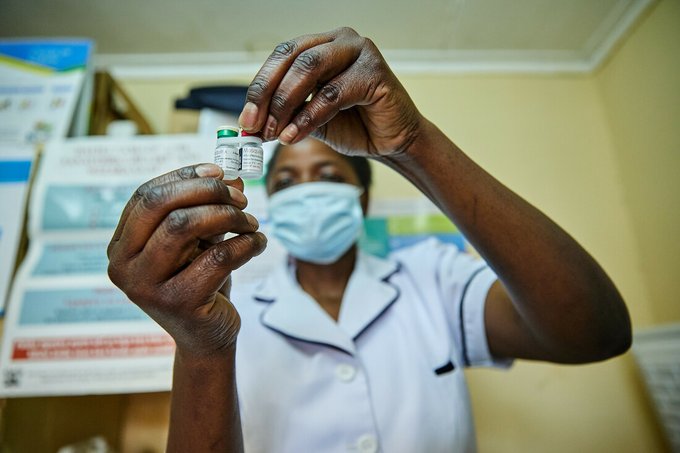The Sokoto State Government has confirmed an outbreak of Dengue Fever, with eight laboratory-verified cases recorded across the Sokoto metropolis. The cases were detected in Sokoto North and Sokoto South Local Government Areas, prompting health authorities to issue an urgent alert to hospitals and clinics in the state.
The confirmation came through a public health advisory issued by the State Ministry of Health, following an increase in patients presenting with fever and other symptoms that closely resemble malaria. Health officials say the rising number of unusual fever cases made it necessary to step up surveillance and testing.
The Commissioner for Health, Dr. Faruk Abubakar, said the state is taking proactive steps to prevent the disease from spreading. He warned that Dengue Fever can be easily mistaken for malaria due to similar symptoms, but the treatment approach is different.
“Many symptoms look like malaria, but patients with Dengue often do not respond to malaria treatment,” he said. “This is why health workers must maintain a high level of suspicion and conduct proper testing.”
According to the Ministry, doctors should suspect Dengue Fever in patients with fever, headache, joint pains, body pains, or rashes, especially when malaria rapid diagnostic tests come back negative or when symptoms continue despite malaria treatment.
The Health Ministry directed all healthcare facilities to notify disease surveillance officers immediately whenever they encounter suspected Dengue cases. They were instructed to collect proper samples and send them to approved laboratories for confirmation.
“All healthcare workers are hereby placed on high alert,” the advisory stated. “They must maintain a high index of suspicion for Dengue Fever in patients who show symptoms but test negative for malaria.”
The government also issued a warning against the use of NSAIDs such as ibuprofen and aspirin in suspected Dengue cases. These medications can increase the risk of internal bleeding, a known complication of Dengue Fever. Instead, health workers were advised to use paracetamol for pain and fever management.
Dengue Fever is caused by a virus transmitted through the bite of the Aedes mosquito, particularly the Aedes aegypti species. This mosquito type is also responsible for spreading Zika and Chikungunya. Unlike the malaria-carrying Anopheles mosquito, Aedes mosquitoes bite mostly during the daytime.
Health experts say the disease spreads faster in places where stagnant water and poor waste disposal create breeding grounds for mosquitoes. The Sokoto Ministry of Health emphasized that prevention depends heavily on community participation.
Residents were advised to:
Clear stagnant water around homes
Cover water storage containers
Dispose of waste properly
Keep gutters clean
Use mosquito repellents and nets
These steps, the Ministry said, will significantly reduce the mosquito population and minimize the risk of infection.
Nigeria has recorded sporadic cases of Dengue Fever over the past decade, though the disease is more common in tropical countries in Asia and Latin America. In recent years, several states—including Lagos, Edo, Plateau, and FCT Abuja—have reported confirmed cases, prompting national discussion about the need for stronger mosquito-control programmes.
With Sokoto State now confirming an outbreak, health officials warn that more cases may be detected unless urgent action is taken.
The Ministry of Health said it has strengthened disease surveillance across hospitals and primary healthcare centers, especially in areas where the eight cases were detected. Disease Surveillance and Notification Officers (DSNOs) have been directed to visit facilities more frequently and support health workers with early detection.
Dr. Abubakar also urged health workers to report any unusual symptoms, clusters of fever cases, or unexpected deaths immediately, stressing that quick reporting helps prevent outbreaks from spreading.
“We encourage all health workers to remain vigilant and cooperate fully with public health authorities,” he said. “Their role is crucial in ensuring that cases are managed properly and reported promptly.”
The government has also started community awareness campaigns through radio jingles, town announcers, and local health educators. These campaigns aim to teach residents how to protect themselves and identify early symptoms.
Many residents in Sokoto are more familiar with malaria, which remains one of the most common illnesses in the state. Because Dengue shares many symptoms with malaria, public health educators are stressing the importance of getting tested rather than self-medicating.
Officials say self-medication with strong painkillers or malaria drugs may worsen symptoms and delay diagnosis.
The Sokoto State Government said hospitals have been instructed to prepare isolation areas where suspected Dengue patients can be monitored safely. Although Dengue Fever is not spread from person to person, isolation helps prevent additional mosquito exposure.
Doctors have also been asked to monitor patients closely for warning signs of severe Dengue, including:
Persistent vomiting
Bleeding gums or nose
Severe abdominal pain
Difficulty breathing
Sudden drop in blood pressure
Severe Dengue can be life-threatening if not treated quickly.
Dr. Abubakar praised the dedication of health workers who have been responding to the outbreak. He said their commitment is essential to protecting lives, especially as the state faces rising cases of fever-related illnesses.
He assured residents that the government is working closely with federal health authorities and partner agencies to contain the outbreak.
“We will continue to monitor the situation and take all necessary steps to safeguard the health of our people,” he said.
The Sokoto State Government concluded its advisory by calling on residents to take personal responsibility for maintaining clean surroundings and eliminating mosquito breeding sites.
Officials say community cooperation is the most effective way to prevent the disease from spreading further.

